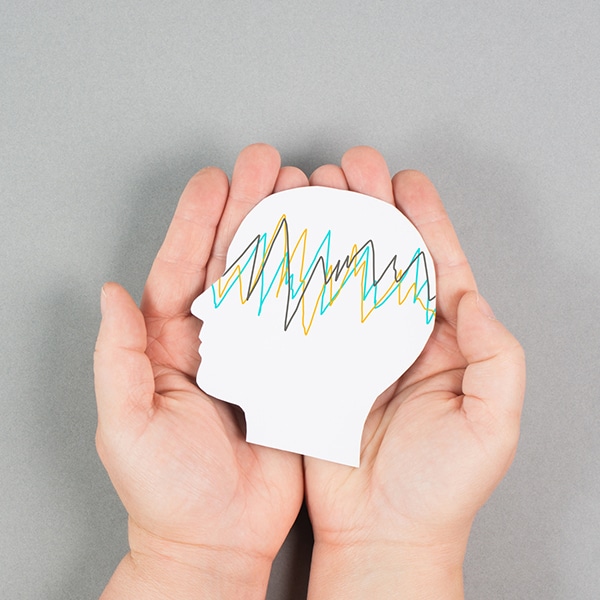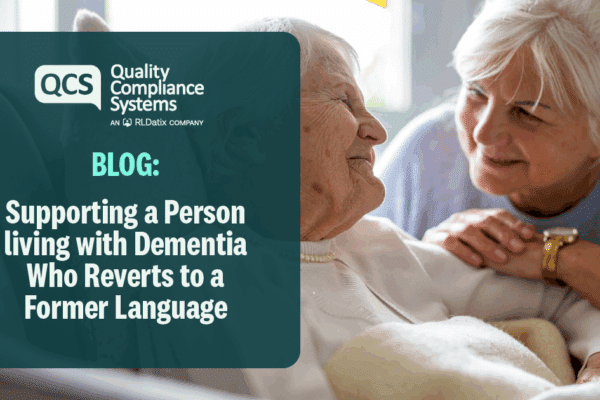If you are supporting someone who struggles with being in groups, has poor concentration or attention, or displays extreme self-injury when not apparently distressed, there may be ways to understand and help.
Going about our daily business we do not really pay much attention to the work our brain and body are doing to process the information we are getting from the world around us. Of course we are aware of the world we can see and hear; the traffic noise, the physical environment, the position and size of obstacles, for example. We are so skilled at dealing with all of this information that most of our activity to manage it is unconscious and automatic. We rarely consider our balance, for example, when pushing a trolley around the market.
Seven senses?
The senses are amazing when you think about it. Only when you start to lose something, or it is temporarily impaired, do you realise the importance of the senses all working together in everyday life. Imagine your life without even one of the senses; many of us do this and the prospect is frightening.
It may surprise you to learn that humans have seven (not five, or six!) senses:
- Auditory (hearing)
- Visual (vision)
- Gustatory (taste)
- Olfactory (smell)
- Tactile (touch)
- Proprioception (force of movement and body position)
- Vestibular (knowing where your head is in space, gravity)
All of the time, our brains are reading and organising information coming in from these seven senses, enabling us to make sense of the world around us and respond to stimuli accordingly. This is called ‘Sensory Processing’. If the brain doesn’t interpret and organise information from the senses, this can affect learning, movement, control and behaviour. Our responses to sensory input can be inconsistent and outside our conscious control.
Impaired Senses in Learning Disability
People with severe cognitive impairment have difficulty processing a vast array of stimuli and may often use compensation behaviours to get the sensory feedback that they require. For example, they may need to touch everything or everyone to gain tactile feedback. They might also seek movement, so display spinning and rocking or extreme activity for long periods of time.
They might struggle with some items of clothing or textures and refuse to remain clothed in extreme cases, or frantically tuck everything in or button themselves tightly. They could create their own set of sounds and noises, or become highly agitated for what might seem to be no reason. In extremes, they might self-injure to worrying levels.
Such sensory difficulties can often be ‘invisible’ or undetected, or be interpreted as reactive behaviour to other situations, for example to seek attention. All behaviours happen to meet some need of course; either to obtain or avoid something.
What can you do to help?
If you suspect a person you know may be showing signs of sensory processing disorder, you can get help. A referral to an Occupational Therapist will enable an assessment, observing the client in a variety of settings to get a better understanding of their sensory needs. The OT will also speak with those working with / caring for the client to complete a questionnaire of what they see as the person’s sensory needs and may also complete a sensory inventory assessment.
The Occupational Therapist will then write a report and recommend a range of activities, modifications to person’s lifestyle, home and environment, and activities they participate in. You might be surprised at some of the suggestions they make to help your client cope with this disorder.
Remedial intervention involves the use of sensory and motor treatment activities and equipment, including activities that provide increased tactile and movement opportunities, such as suspended equipment like swings and ropes, tactile activities like massagers or body brushes, and activities that promote motor planning, like obstacle or assault courses.
You might be asked to try adaptations such as the person wearing earplugs or noise cancelling headphones, or using a rough loofah sponge when showering. This will manage hypersensitivities, which in turn can improve attention, promote self-regulation or improve organisational difficulties.
Incorporating therapy into the care plan
The OT might recommend a ‘sensory diet’ plan, which uses a daily schedule with a menu of individualised, supportive sensory strategies. This could involve rocking chair time, quiet space, aromatherapy or maybe the use of a weighted blanket or vest. They may also suggest the person has a bag of materials such as music making devices, stress balls or other items for distraction. These can be used throughout the day to help manage sensory processing problems like touch or auditory sensitivity, and can regulate emotions and behaviours such as anxiety or self-injury, helping avoid escalations of behaviour and promoting calm.
To help you support people with sensory processing disorder, there may be things you can do to change the living environment and make it less jarring and upsetting. This could include the use of mood lighting to reduce glare, calming colours and textures. Alternatively, things like wall murals and art, or therapeutic furniture like rocking chairs and gym ball seats, can provide sensory stimulation.
Above all, the key to supporting people with sensory processing disorder is understanding and knowledge among the care team. Using your skills in creating low stress or stimulating environments, being aware of triggers and potential issues and allowing processing time to deal with sensory input are all key. Think about breaking down an activity into ‘now and next’ steps to give the person time to manage the sensory changes and action needed to adapt.
Your local OT department will probably be able to come and provide training to your staff in the different ways you can approach this aspect of people’s care. There is a wealth of written and video material available from the sources listed below. It is important to add though, that any intervention should be carefully designed to the specific assessed needs of the client. Getting it wrong by guessing can be highly counter-productive, so a professional assessment is vital.
Links
http://www.cerebra.org.uk
https://www.cot.co.uk
http://sinetwork.publishpath.com
www.autism.org.uk





